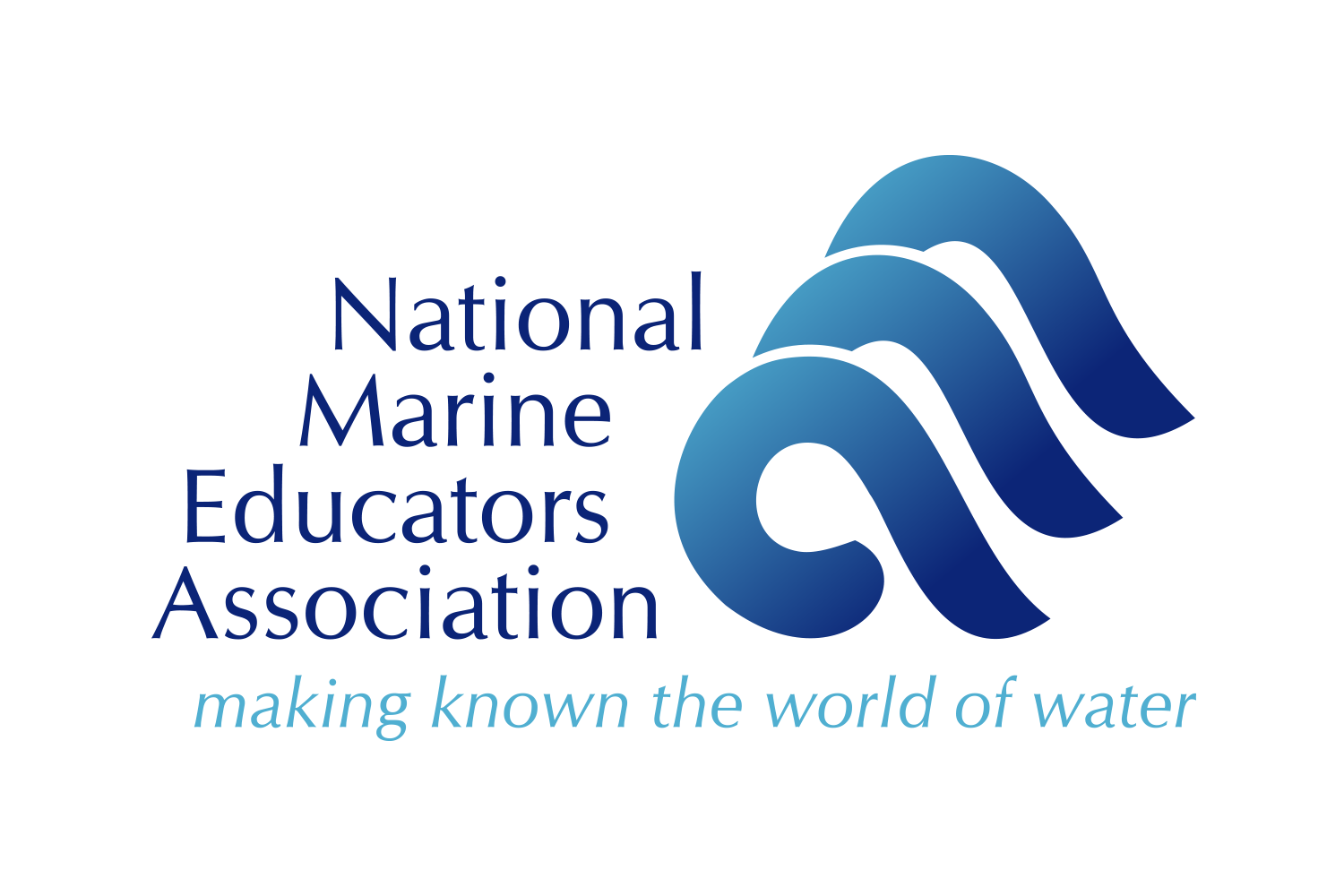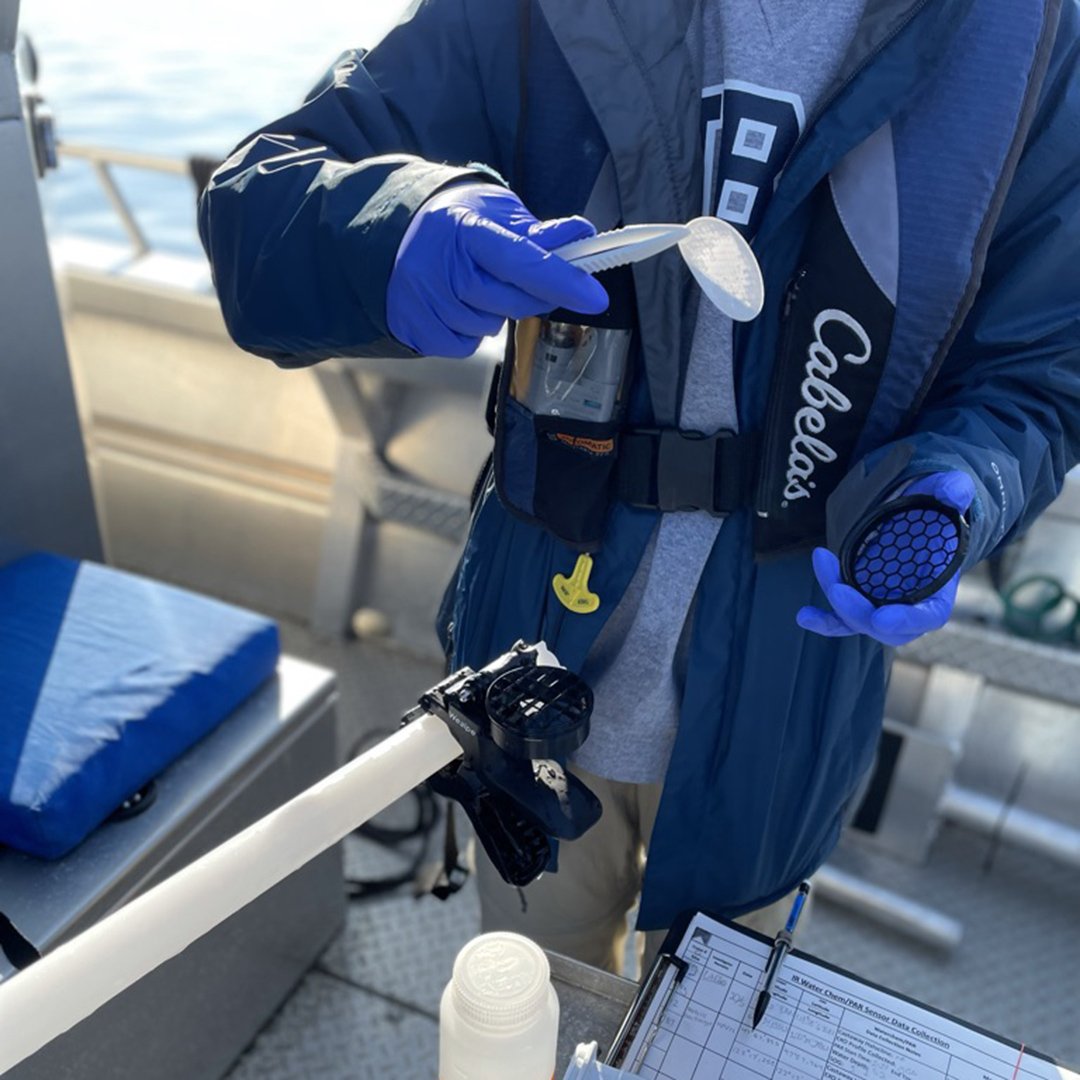Charismatic MegaEducator Ardi Kveven Revolutionizes Marine Education
At ORCA, highschoolers earn college credit while answering research questions of their own design aboard a 34-foot research vessel. Ardi Kveven made it possible.
By Sydney Parker and Lindsay Holladay Van Damme, foundry10
ORCA’s 34-foot research vessel Phocoena at the dock in front of Port of Everett's Waterfront Center. Photo credit: Sydney Parker
On an overcast October morning in Everett, Washington, a 34-foot research vessel named Phocoena launched into Possession Sound. On board was a treasure trove of sophisticated scientific instruments: an Acoustic Doppler Current Profiler (ADCP) that can measure the speed and direction of water across a column, a conductivity, temperature, and depth (CTD) sensor with an attached PAR sensor for measuring light available for photosynthesis, and myriad of plankton nets, Niskin bottles, and even a custom 3D-printed passive eDNA capture device.
The ten teenagers aboard confidently prepared the instruments for deployment, chatting and exchanging marine-themed banter as they handled the professional grade oceanographic equipment. They planned to use the water quality data they collected including temperature, salinity, dissolved oxygen, and more to answer research questions of their own design.
The students are enrolled in the Ocean Research College Academy (ORCA), an interdisciplinary project-based learning program at Everett Community College. ORCA students can earn up to two years of college credit while completing their high school education. Most students graduate with an associate’s degree in addition to a high school diploma.
ORCA students Natalie Brachvogel (L) and Madeleine Center (R) work with oceanographic equipment on board the Phocoena. Photo credit: Sydney Parker
Students enroll in ORCA for a myriad of reasons: a genuine interest in marine science, the novelty of a hands-on learning experience, a desire for more rigorous coursework, or just an alternative to the typical high school experience.
“I could be sitting in class right now, but I’m not. I’m on a boat,” said senior Madeleine Center.
For senior Sidney Schneider, it’s the magic moments witnessing a sea lion tear apart a live fish or watching hundreds of migrating Western Grebes do a mating dance out on the water that affirm her decision to enroll. “We’re all introverts,” said Sidney, who heard about the program from a friend’s older sister. “The community at ORCA is so strong and everyone is so kind to everybody.”
Cross-Disciplinary Curriculum Anchored in Local Phenomena
Ocean Research College Academy (ORCA) founder Ardi Kveven. Photo credit: Sydney Parker
Founded and led by the visionary educator Ardi Kveven in 2004, ORCA is unique among early-college academies in North America. ORCA’s team of educators provide students a cross-disciplinary curriculum anchored around local phenomena of the Salish Sea. In their classes, ORCA students engage in both independent and collaborative research that is bolstered by their own hands-on data collection and a wealth of student-sourced data from the past two decades. Ardi and her team have taken students on over 350 monthly cruises around Possession Sound and the Snohomish River, building students’ oceanography skills and contributing to that robust data set.
“In the classic mentoring model, there’s an expert telling the students what to do. Here, we help students ask and then attempt to answer their own questions,” said Ardi. “It’s not a common approach because it's challenging and takes a very dedicated staff.”
Thanks to a generous grant from the National Science Foundation, in 2011, the program moved into a new facility on the second floor of the Port of Everett's Waterfront Center. Designed specifically for ORCA, the location includes classrooms, faculty offices, a common area, and lunchroom adjoining the custom research lab.
For Anika Ghosh, the opportunity to work in a lab and make an immediate impact was alluring. “I took AP Environmental Science as a freshman and that whole class was about global warming,” said Anika. “I thought, wow, we should do something about this—I want to do something about this.”
ORCA student Abigail Searle sits on deck ready to capture a photo. Photo credit: Sydney Parker
The potential to influence current policy and practice is exciting for students. For example, in March 2018, Gov. Jay Inslee issued an executive order directing state agencies to take immediate actions to recover the declining Southern Resident orca whale population. Some hold humans accountable for the decline, while others blame overpopulation of seals and sea lions.
Since 1972, the population of seals and sea lions has been growing on the West Coast thanks to the adoption of the Marine Mammal Protection Act. These marine mammals eat Chinook and other salmon, a favorite meal of the resident orcas. But how big of an impact is sea lion predation really having on the salmon population?
A Rigorous Student-Driven Approach to Learning
High school students at ORCA can apply their developing data collection and analysis skills in real time to investigate a possible piece of this food web question. Ardi and her students hypothesize that pinnipeds eat a wide variety of fish as opportunistic feeders, and may even eat species of fish that prey on young salmon.
The eDNA filter specimen is carefully handled with tweezers. Photo credit: Sydney Parker
This raises a complex question: Are the non-salmon fish diets of seals and sea lions large enough to offset the number of salmon those same seals may be eating? Rather than measuring the prey items directly from their scat (which requires a permit), ORCA students are hoping that the eDNA (environmental DNA) that is shed from animals in the environment can help give detailed information about species that are present or passing through the water column, providing insight into the ecosystem dynamics.
Other intricate questions that students are investigating at ORCA include the effects of wind speed on salinity in the Snohomish River, the relationship between tidal cycles and haloclines, and plankton abundance and distribution.
Senior Abby Searle regularly collects river otter scat and dissects it for clues into the animal’s diet. “When you’re dissecting it, you wash everything out through strainers and then use tweezers to pull it out,” said Abby. “It’s not too bad.”
Marine Science staff and researchers at foundry10 have been following the rigorous, student-driven approach of ORCA’s education program for the past three years. Marine Science Program Developer, Lindsay Holladay Van Damme, is especially curious about how staff at ORCA cultivate student confidence around using oceanographic technology and narrating the stories they find in the resulting data.
“I’ve been in rooms where maritime professionals and seasoned ocean researchers are hard-pressed to define, much less articulate how an ADCP or PAR sensor works,” says Lindsay. “And here Ardi has students in 11th and 12th grade not just deploying and talking about these pieces of equipment but also asking sophisticated questions about the tools and designing lines of inquiry to answer those questions.”
Lindsay adds “I’d love to see more high school programs where students can geek out this hard over chlorophyll trends and river otter poop.”
And that’s where questions about scope and scalability of a boutique program like ORCA come into the conversation. ORCA’s unique geographic, academic, and historic position may not be widely replicable, but foundry10 staff are eager to identify some of the keys that Ardi and her team have used to unlock student success.
Ardi Kveven’s Three Keys to Unlocking Student Success
- Relationships are central to building the confidence to ask questions and not be afraid to be wrong (which happens in science, and leads to the next question)
- Engaging students in local research enables them to collect and use data that is relevant to where they live. It doesn’t matter if it’s an ocean or a pond or their backyard; find a local question and pursue it.
- Cultivating curiosity by empowering students to ask questions lasts beyond traditional schooling .
Two hallmarks of the program that the foundry10 team note are ORCA faculty’s commitment to student-driven learning and to staying curious in their own professional development.
Ardi Kveven works with ORCA students to collect oceanographic data on a recent cruise around Possession Sound, WA. Photo credit: Sydney Parker
“It may be challenging and messy at times, but it’s authentic.” Lindsay notes. “I see Ardi constantly modeling what it looks like to be curious and ask questions with her students. And they’re not leading questions. She’s asking rich, open-ended questions like ‘What could we be missing here? What does that make you wonder about?’ It takes three times as long as an educator and is ten times as impactful. Her genuine curiosity is infectious and normalizes the ‘wondering’ process for everyone around.”
Ardi points to an ability to build relationships as the key to her success. Whether connecting with guidance counselors at the local high school or lab technicians at the Washington Department of Fish and Wildlife, she finds a way to get people excited and engaged with her students’ work.
“These kids are doing the science that no one else is doing, and the scientific community is just enthralled by it,” said Ardi. “They will volunteer their time and resources. My job is just to link our story to theirs.”
About foundry10
foundry10 is an education research organization with a philanthropic focus on expanding ideas about learning and creating direct value for youth. In collaboration with diverse partners, we surface, evaluate, and share opportunities to better support youth learning both inside and outside the classroom. We do this through applied and experimental research, as well as collaborative philanthropy and educational programming rooted in evidence-based best practices.
To learn more about Marine Science programs and projects at foundry10, reach out to Marine team at ocean@foundry10.org.






